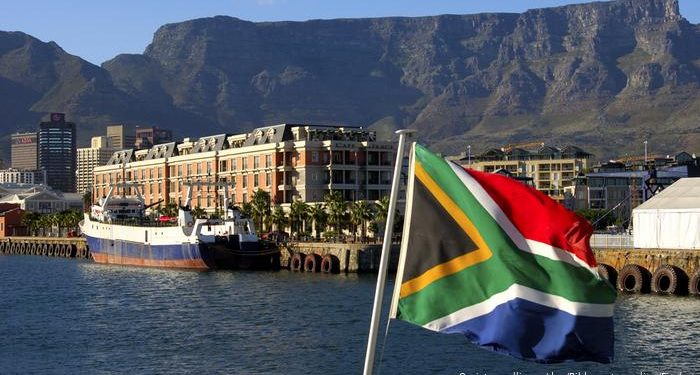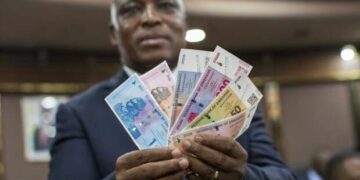The economic outlook for the second half of 2020 is not looking positive which is likely to have an impact on investors.
Andrew Duvenage, managing director of NFB Private Wealth Management, outlines what investors can expect for the remainder of 2020 and how to mitigate these risks. NFB Private Wealth Management is part of the AltX listed NVest Financial Holdings (NVE) group of companies
The reality is that the South African economy is likely to continue to struggle. The country entered the Covid-19 crisis in a precarious fiscal position with an economy which has been in a state of decline for several years.
Given the length and severity of the lockdown – one of the harshest globally – it should perhaps be no surprise that the country’s GDP contracted 51% in the second quarter of 2020 based on annualised quarter on quarter numbers.
This contraction came on the back of three successive quarters of contraction and an average growth rate of well below 1% over the past five years.
The consequences of this contraction will be lower tax collections, a ballooning budget deficit and very limited options available to government around financing this deficit.
Despite several announcements that government will kick-start economic growth with an investment in infrastructure spending, it is unlikely that in this environment they will be able to look to infrastructure spend as a mechanism to revive economic growth – unless it is prepared to implement structural reforms required to attract investment.
These structural reforms require, among others, that government reduces expenditure. This includes reducing the bloated public sector wage bill which appears unlikely in the current environment.
Other structural reforms that it needs to implement include ensuring policy certainty, removing regulatory red-tape and ensuring South Africa becomes more competitive globally.
Business confidence is currently at an all-time low which has a knock-on effect on investment. In recent months a number of companies have shelved plans for further investment in SA, including SAB, a division of AB InBev, which has put a halt to a planned investment of around R5 billion, in part as a result of the prolonged ban on alcohol sales.
Consol Glass, meanwhile, has indefinitely suspended construction of a new glass manufacturing plant valued at R1.5 billion, while Heineken has also shelved its investment plans, valued at just under R1.5 billion.
Exacerbating poor business confidence is growing unemployment. In July alone the Commission for Conciliation, Mediation and Arbitration received 190 large-scale retrenchments referrals, along with 1 307 small-scale retrenchment referrals.
The inflexibility of the local labour market means we probably have not yet seen the full extent of unemployment. It is likely that more companies will be retrenching staff in the coming months.
Unfortunately, South Africa’s unemployment situation is likely to be structural in nature compared to the US experience where unemployment spiked and then fell rapidly as labour were reabsorbed.
The reality is that South Africa’s current fiscal position is going to be very difficult to manage. Government does not have the means to stimulate and support the economy in the same way that more developed countries are doing.
This means many more businesses will fail, particularly those in the tourism, retail and hospitality sectors, who will not survive this period, further exacerbating unemployment figures.
Corporate earnings will continue to be under pressure. The JSE’s apparent post Covid recovery has not been broad-based and has been dominated by tech counters like Naspers and mining stocks.
The ZAR price of gold, for instance, has been a huge advantage for gold miners.
Domestic property, financials and South African industrial stocks, however, are on average down 40-50% from their pre-Covid highs.
Unemployment figures will add additional pressure to the fiscus in terms of higher social welfare needs and less – and lower – contributions to personal income tax.
A debt trap is no longer a risk but a reality for South Africa, which could lead to a sovereign debt crisis. Although the ruling party have long had an ideological aversion to an IMF bailout as it would result in a loss of sovereignty, their options are becoming increasingly limited.
Given the current environment there is the very real risk that social pressure will increase as a result of the poor economic outlook. Not only is this likely to have political ramifications within the ANC but it could also impact the broader political landscape.
So, where does this leave investors? The strengthening of the ZAR should not necessarily be seen to be indicative of improvements in the local economy, but rather as an opportunity for investors to ensure that their portfolios are diversified at appropriate levels.
A global diversification strategy is key in this environment. While the tech market has largely driven the local market recovery, there is a risk to being overly concentrated in the local market. While markets are high we still believe there is a case for equities.
Interest rates globally are expected to stay low for longer, particularly given the recent FED announcement on policy. At the same time stimulus measures will in all likelihood see a rebound in global GDP which will support investments in equity.
However, investors need to be aware that market entry risk is a real issue given the current market levels.








